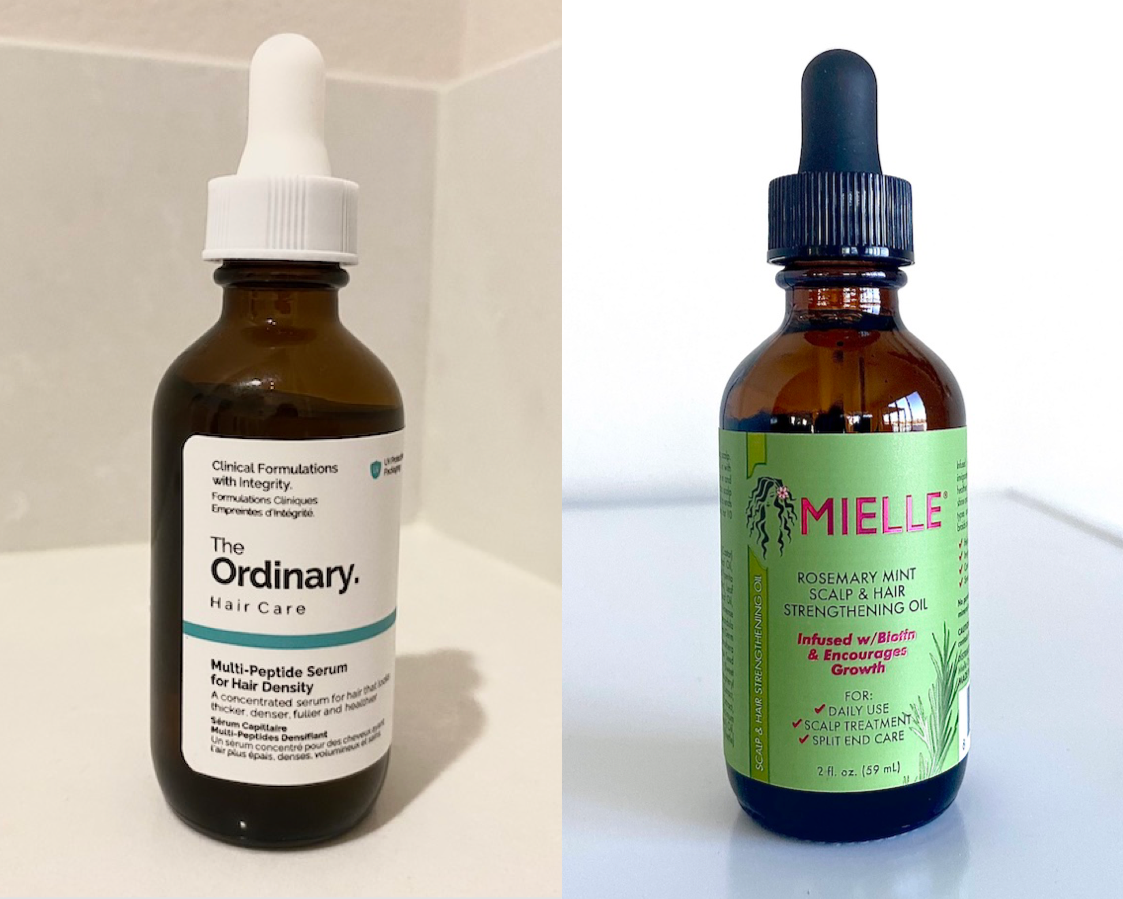How To Choose a Scalp Treatment for your Scalp Type

If you buy through links on our site, we may earn an affiliate commission. As an Amazon Associate, I earn from qualifying purchases. This keeps it 100% reader-supported and free of advertisements or sponsorships. Thanks for your support!
Our scalp, often overlooked in the realm of self-care, plays a pivotal role in the health and vitality of our hair. Just as a garden thrives with the right care and attention, your scalp too demands tailored treatment to flourish. From oily to dry, sensitive to normal, each scalp type requires a unique approach to achieve optimal balance and well-being. The journey towards a healthier scalp begins with understanding its individual needs and selecting treatments that align with your scalp's specific characteristics.
Whether you're grappling with excess oil, battling with dryness and itchiness, or simply seeking to maintain your scalp's equilibrium, we've got you covered. Let’s start by identifying your scalp type. Your journey to a healthier scalp starts here!
How To Know Your Scalp Type
Knowing your scalp type is important for choosing the right hair care products and routines. Here's how you can determine your scalp type:
- Cleanse your hair: Start by washing your hair with a gentle shampoo to remove any product buildup, excess oil, and dirt from your scalp.
- Wait for a day: After washing, give your scalp about 24 hours to settle down. This allows your scalp's natural oils to distribute and stabilize.
- Observe your scalp: Look and feel your scalp to assess its characteristics. There are generally four main scalp types:
- Normal scalp: If your scalp feels comfortable, not too oily or dry, and your hair looks healthy and manageable, you likely have a normal scalp.
- Oily scalp: An oily scalp feels greasy, especially shortly after washing. Your hair might appear limp and flat due to excessive oil production. Oily scalps are prone to issues like dandruff and acne.
- Dry scalp: A dry scalp feels tight, itchy, and may be flaky. You might notice small white flakes on your scalp and clothing. Dry scalps can lead to dandruff and irritation.
- Combination scalp: Some people have a combination of oily and dry areas on their scalp. For instance, your scalp might be oily near the crown but dry around the hairline or vice versa.
- Check your hair type: Your hair type can also provide clues about your scalp type. For example, people with fine hair tend to have oilier scalps, while those with coarse hair might have drier scalps.
- Consider other factors: Your scalp type can also be influenced by factors such as weather, hormonal changes, stress, diet, and the hair products you use. Keep these factors in mind when assessing your scalp type.
- Repeat the observation: It's a good idea to observe your scalp over a period of time, as scalp conditions can change due to various factors. If you notice significant changes, you might need to adjust your hair care routine accordingly.
Treatments for Oily Scalp
If you have an oily scalp, there are several scalp treatments and practices that can help balance oil production, reduce greasiness, and maintain a healthy scalp. Here are some effective treatments for oily scalp:

Clarifying Shampoos
Clarifying shampoos are designed to deeply cleanse the scalp, removing excess oil, product buildup, and impurities. Use them occasionally (about once a week) to prevent over-stripping your scalp's natural oils.

Tea Tree Oil
Tea tree oil has natural antifungal and antibacterial properties that can help regulate oil production and prevent fungal growth on the scalp. Add a few drops to your regular shampoo or use a tea tree oil-infused shampoo.
Balancing Masks
Clay masks or scalp treatments with kaolin or bentonite clay can help absorb excess oil and impurities from the scalp. Apply these masks to the scalp, leave them on for a specified time, and then rinse thoroughly.

Apple Cider Vinegar Rinse
Dilute apple cider vinegar with water and use it as a final rinse after shampooing. This can help balance the scalp's pH and control oiliness.
Treatments for Dry Scalp

Dealing with a dry scalp requires special care to alleviate itchiness, flakiness, and discomfort. Scalp oils like coconut oil, castor oil, argan oil, jojoba oil, or olive oil are great for nourishing a dry scalp. Gently massage the oil into your scalp, leave it on for a few hours or overnight, and then wash your hair as usual.
Treatments for Hair Density

Hair Density and Fullness Serums and Tonics
Some essential oils, like rosemary oil, peppermint oil, and lavender oil, have been suggested to encourage hair growth when diluted and applied to the scalp.
Scalp Massage
Regularly massaging your scalp with gentle pressure can stimulate blood circulation to the hair follicles, promoting hair growth.
Treatments for Scalp Irritation
Scalp Toners and Serums with Anti-Inflammatory Ingredients
Use products containing natural anti-inflammatory ingredients like aloe vera, chamomile, or oatmeal to soothe the scalp
Apple Cider Vinegar Rinse
Dilute apple cider vinegar with water and use it as a final rinse. Its anti-inflammatory properties can help calm scalp irritation.
How To Choose a Scalp Treatment or Oil for your Scalp Type Conclusion
Armed with knowledge about the various treatments available – from hydrating masks to soothing oils, and from gentle exfoliants to therapeutic shampoos – you're now equipped to make informed decisions that cater to your scalp's distinct requirements. Remember that patience and consistency are key; changes won't happen overnight, but with diligence, you'll begin to see the fruits of your efforts.
As you explore and experiment with different treatments, pay close attention to your scalp's response. Listen to what it's telling you, adapt your routine as necessary, and don't hesitate to seek professional guidance when needed. Whether you're on a mission to conquer oiliness, banish dryness, or simply maintain the harmony of your scalp, your commitment to self-care is a testament to your dedication to a healthier, happier you.


